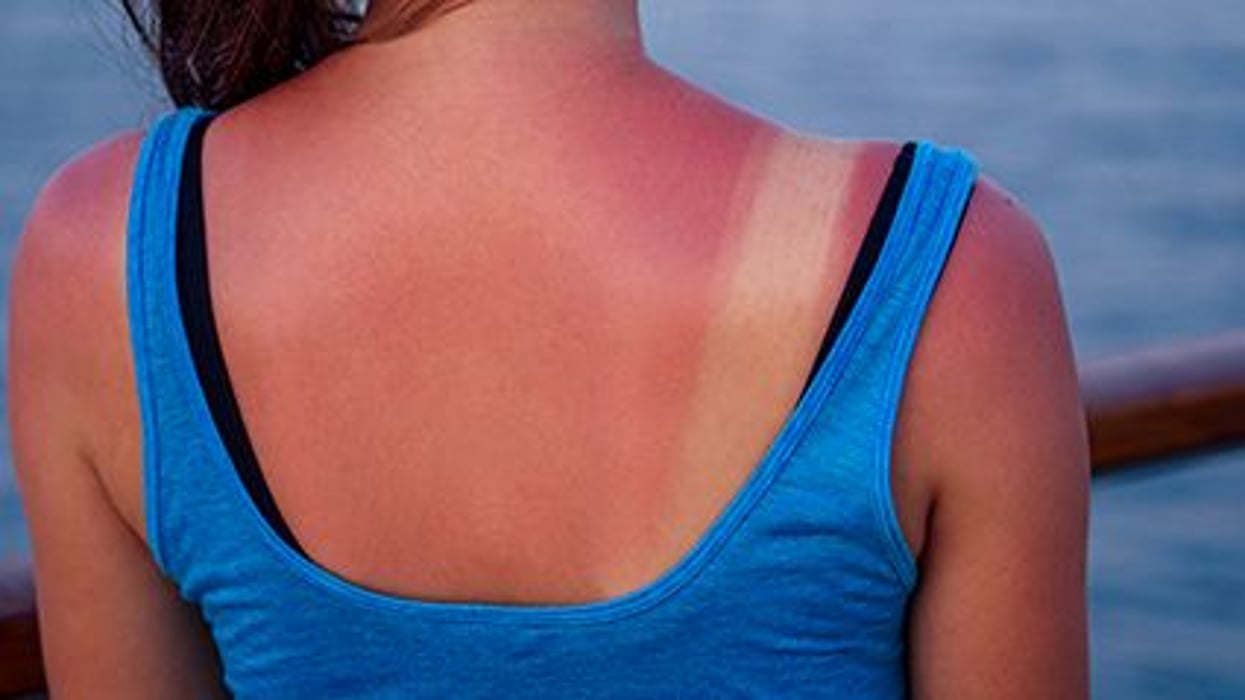Don’t Get (Sun)Burned This 4th of July Weekend

FRIDAY, June 30, 2023 (HealthDay News) -- Adding sun protection to your holiday gatherings takes little effort and can help you avoid the pain and potential side effects of sunburn.
As Americans prepare to celebrate July 4 with parades, swimming and cookouts, the American Academy of Dermatology offers some tips for protecting your skin from the sun and reducing your future risk of skin cancer.
One-third of American parents had a child who was sunburned in 2022, a survey of 1,000 parents revealed.
“The survey data is troubling because blistering sunburns and childhood sunburns greatly increase your risk of getting skin cancer, including melanoma, the most serious form,” Dr. Anna Yasmine Kirkorian, chief of dermatology at Children's National Hospital in Washington, D.C., said in an academy news release. “To some extent, I think parents are aware of the need for sun protection, but at the same time are falling short of adequately protecting their children.”
The academy recommends these steps:
Seek shade, especially between 10 a.m. and 2 p.m. when the sun’s rays are strongest. Wear a lightweight, long-sleeved shirt, pants, wide-brimmed hat and sunglasses with UV protection, if possible.
Apply a broad-spectrum, water-resistant sunscreen with an SPF of 30 or higher to all skin not covered by clothing. Reapply this every two hours or after swimming or sweating.
“I tell parents to make sure that their children are willing to apply sunscreen themselves,” Kirkorian said. “For their faces in particular, it’s often best to try a stick sunscreen because it’s easier to apply. I also recommend that they tell their children to go inside to rest during the times of the day when the sun is the strongest.”
Treat a sunburn as soon as possible, going inside and taking frequent cool baths or showers to help relieve the pain.
Gently pat yourself dry, but leave a little water on your skin. Apply a moisturizer to help trap the water in your skin, which can ease the dryness.
A moisturizer that contains aloe vera or soy will help soothe sunburned skin. Apply over-the-counter hydrocortisone cream to particularly painful areas.
Do not treat sunburn with “-caine” products, including benzocaine. These may irritate the skin or cause an allergic reaction.
Take aspirin or ibuprofen to help reduce any swelling, redness and discomfort. The academy also recommends drinking extra water to restore fluids and help prevent dehydration.
If your skin blisters, allow the blisters to heal. This is a second-degree sunburn. You should not pop the blisters, which help your skin heal and protect you from infection.
Take especially good care of sunburned skin while it heals, wearing clothing to cover it while outdoors. Tightly-woven fabrics work best. You can tell the cloth is tightly woven because you shouldn’t see any light come through when holding it up to a bright light.
“If your skin starts to blister and you feel unwell from the blisters or heat exhaustion, then you should seek care from an emergency room,” Kirkorian said. “Similarly, if the blisters are very large, you’ll want to seek medical care. If you have any questions about ways to properly protect yourself and your family from the sun, partner with a board-certified dermatologist.”
More information
The Skin Cancer Foundation has more on caring for a sunburn.
SOURCE: American Academy of Dermatology, news release, June 27, 2023
Related Posts
JCAHO Standards Not Always Supported by High-Quality Evidence
WEDNESDAY, June 29, 2022 (HealthDay News) -- Only six of 20 actionable standards...
Israel Will Give Fourth COVID-19 Shot to People Older Than 60, Health Workers
MONDAY, Jan. 3, 2022 (HealthDay News) -- Israel will now offer a fourth dose of...
Educational Intervention Increases Use of Pulse Oximeter Ear Probes
WEDNESDAY, Dec. 7, 2022 (HealthDay News) -- Providing an educational...
Smoke From Canadian Wildfires Triggers Air Alerts in Colorado, Montana
MONDAY, May 22, 2023 (HealthDay News) – Two western U.S. states issued air...
